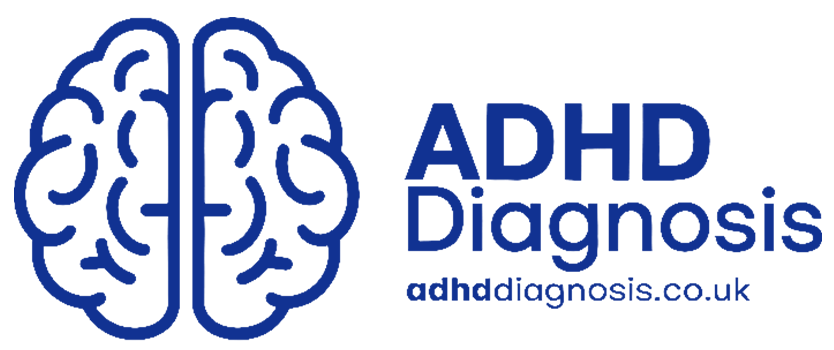Understanding Impulsivity and ADHD
Impulsivity is one of the core symptoms of Attention Deficit Hyperactivity Disorder (ADHD), affecting both children and adults. It manifests as acting without thinking, difficulty waiting your turn, interrupting conversations, and making rash decisions. While impulsivity can lead to creativity and quick thinking in some situations, it can also cause problems in relationships, work, and daily life. The good news is that with the right strategies and expert guidance, managing impulsivity with ADHD is entirely possible.
Why Does ADHD Cause Impulsivity?
ADHD affects the brain’s executive functions — the mental processes responsible for self-control, decision-making, and impulse regulation. The prefrontal cortex, which helps manage these functions, tends to be underactive in individuals with ADHD. This makes it harder to pause and evaluate the consequences of actions before responding.
Example: You might blurt out an answer in a meeting without thinking or interrupt someone during a conversation because the brain struggles to engage the “pause” button.
Common Signs of Impulsivity in ADHD
👉 Interrupting conversations – Speaking out of turn or finishing other people’s sentences.
👉 Acting without thinking – Making quick decisions without considering the consequences.
👉 Difficulty waiting your turn – Struggling to queue or wait in line.
👉 Emotional outbursts – Reacting with intense emotions before processing the situation.
👉 Poor financial decisions – Impulsively spending money or signing up for services without consideration.
Expert Tips for Managing Impulsivity with ADHD
✅ 1. Pause and Breathe
When you feel the urge to act impulsively, take a moment to pause and breathe deeply. Counting to five before responding can give your brain time to process the situation more calmly.
Tip: Try the “4-7-8” breathing technique — inhale for 4 seconds, hold for 7 seconds, and exhale for 8 seconds. This helps calm your nervous system and create mental space.
✅ 2. Use a Mental “Stop Sign”
Visualise a stop sign whenever you feel the impulse to act or speak without thinking. This mental image serves as a cue to pause and reconsider your response.
Example: Before interrupting someone, imagine the stop sign and ask yourself, “Is this the right time to speak?”
✅ 3. Practise Mindfulness
Mindfulness helps you become more aware of your thoughts and actions in real-time. By practising mindfulness regularly, you can train your brain to recognise impulsive urges and respond more thoughtfully.
How to Practise:
- Spend 5–10 minutes each day focusing on your breath.
- Notice when your mind wanders and gently bring it back to the present moment.
- Use mindfulness apps like Calm or Headspace for guided sessions.
✅ 4. Create Structure and Predictability
Lack of structure can worsen impulsivity. Establishing clear routines and predictable daily schedules reduces the need for split-second decision-making.
Tips:
- Use a daily planner to schedule tasks and appointments.
- Break down large tasks into smaller, manageable steps.
- Set reminders to stay on track.
✅ 5. Engage in Physical Activity
Exercise helps regulate impulsive behaviour by improving dopamine and serotonin levels in the brain. These chemicals enhance mood and impulse control.
Suggested Activities:
- High-intensity workouts like running or cycling.
- Yoga and Pilates to improve focus and relaxation.
- Martial arts for discipline and self-control.
✅ 6. Develop Self-Talk Strategies
Train yourself to use positive self-talk when faced with impulsive urges. Replace negative thoughts with calming and rational statements.
Examples:
❌ “I can’t help it; I’m just impulsive.”
✅ “I can pause and think before I act.”
✅ 7. Try Delayed Gratification Techniques
Teaching yourself to delay gratification strengthens impulse control. Start small by practising with everyday decisions.
Example: If you want to make an impulsive online purchase, wait 24 hours before buying it. This helps you differentiate between impulse and genuine need.
✅ 8. Seek Professional Support
Sometimes, managing impulsivity requires external guidance. Therapists and ADHD coaches can provide targeted cognitive behavioural therapy (CBT) and other treatments to help regulate impulsivity.
Other Options:
- Medication – Stimulant and non-stimulant medications can improve impulse control.
- ADHD support groups – Sharing experiences with others facing similar challenges can be reassuring and motivating.
How Managing Impulsivity Improves Daily Life
When you develop better impulse control, you’ll notice improvements in:
✔️ Relationships – Fewer misunderstandings and interruptions.
✔️ Work – Improved focus and better decision-making.
✔️ Finances – More thoughtful spending and fewer regrets.
✔️ Emotional Wellbeing – Reduced anxiety and frustration.
Final Thoughts
Managing impulsivity with ADHD is challenging but achievable with the right strategies and support. By practising mindfulness, establishing routines, and seeking professional help when needed, you can improve self-control and make more intentional decisions. Taking small, consistent steps will lead to noticeable improvements in your personal and professional life.







